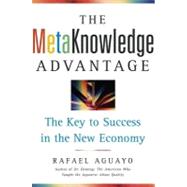
| Foreword | |
| The Winds of Change | p. 1 |
| Knowledge and Revolution | p. 9 |
| Death and Birth in Economics | p. 23 |
| The New Management | p. 36 |
| Moving from an Exact World to a Probabilistic World | p. 52 |
| How Do We Know? | p. 67 |
| Multiple Populations and Thresholds | p. 81 |
| Leverage | p. 90 |
| Exponential Growth | p. 103 |
| The Learning Ladder and Subjective Reality | p. 109 |
| Psychological Types | p. 119 |
| Language, Mathematics, an Multiple Intelligences | p. 129 |
| Toward an Ecology of Commerce | p. 138 |
| Life and Chance | p. 147 |
| Language, Dimensionality, and Logical Levels | p. 160 |
| Communication Revolutions | p. 166 |
| The Power of Trends | p. 182 |
| Globalization and Economic Uncertainty | p. 197 |
| New Economic Paradigms | p. 210 |
| Putting It All Together | p. 228 |
| App. A | p. 251 |
| App. B | p. 259 |
| Bibliography | p. 263 |
| Acknowledgments | p. 269 |
| Index | p. 271 |
| Table of Contents provided by Blackwell. All Rights Reserved. |
The New copy of this book will include any supplemental materials advertised. Please check the title of the book to determine if it should include any access cards, study guides, lab manuals, CDs, etc.
The Used, Rental and eBook copies of this book are not guaranteed to include any supplemental materials. Typically, only the book itself is included. This is true even if the title states it includes any access cards, study guides, lab manuals, CDs, etc.